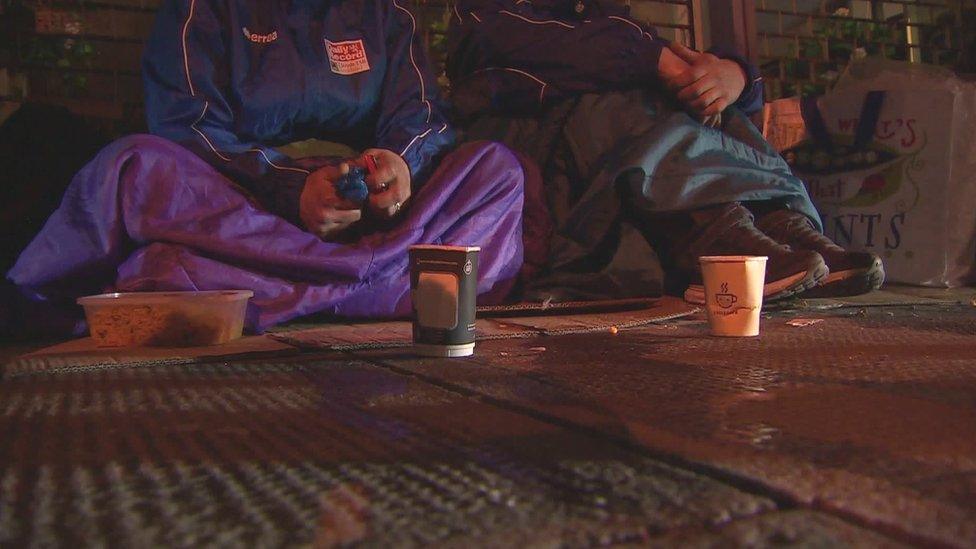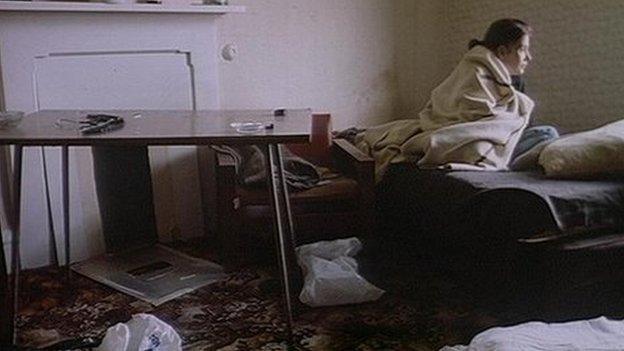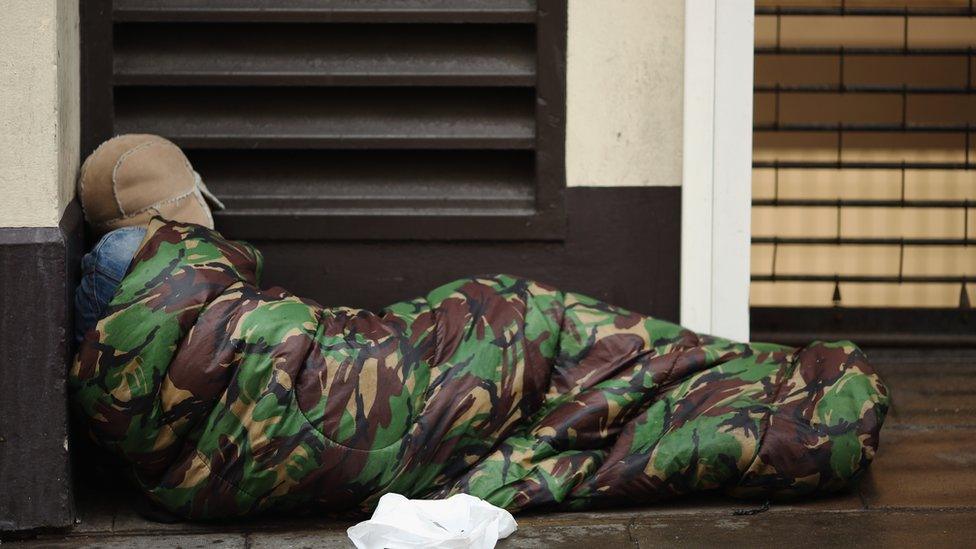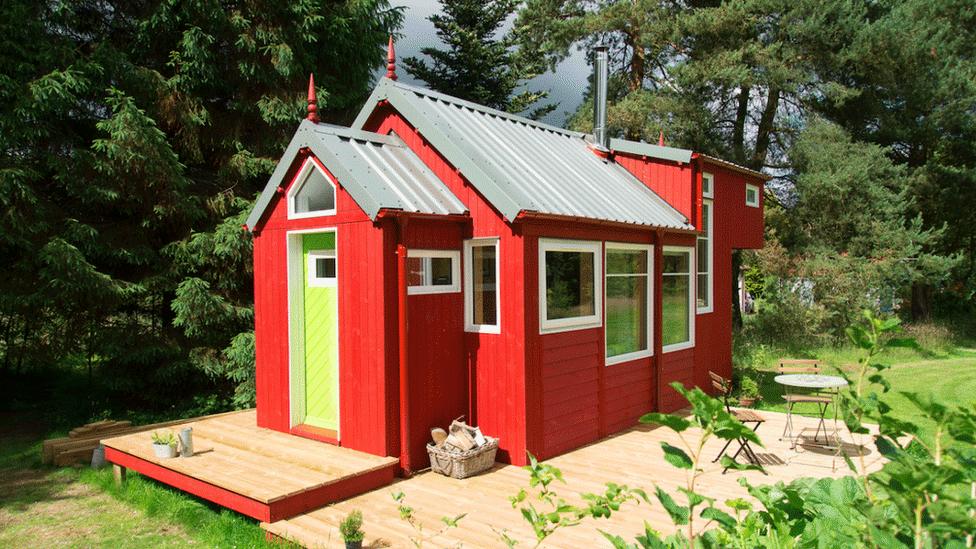Scots homeless numbers predicted to soar over next 25 years
- Published
- comments

Homelessness in Scotland is predicted to rise by more than 53% in the next 25 years, according to new research.
Analysis by Edinburgh's Heriot-Watt University said the number of rough sleepers would double from 800 to 1,500 if current economic policies continue.
Researchers also forecast the number of people in unsuitable temporary accommodation would rise by a third in the next decade.
The study was commissioned by homelessness charity Crisis.
Across the UK, the number of people without a home will reach 392,400 by 2041, according to the analysis, compared with 159,900 in 2016.
The report states there are currently 11,800 people across Scotland either sleeping rough, staying in hostels, living in unsuitable temporary accommodation, sofa-surfing, sleeping in cars or staying in squats or refuges.
The team's analysis indicates this figure is expected to rise to 12,200 by 2021 before accelerating to 18,100 - a rise of 53% on current levels - in 2041.
Jon Sparkes, chief executive of Crisis, said: "This year Crisis marks its 50th anniversary, but that's little cause for celebration.
"We still exist because homelessness still exists, and today's report makes it only too clear that unless we take action as a society, the problem is only going to get worse with every year that passes.
"That means more people sleeping on our streets, in doorways or bus shelters, on the sofas of friends or family, or getting by in hostels and B&Bs. In order to tackle this, it's crucial we first understand the scale of the problem."
Affordable homes
He praised the Scottish government's commitment to build 50,000 new affordable homes by 2021 - of which 35,000 will be for social rent - which he said would help slow the rise in homelessness in the short-term.
He added: "Now is the time for action and we look forward to working with the Scottish government to find solutions and bring these forecasts down."
The report estimates that at any one time in 2016, 800 people had spent one night sleeping rough while 5,200 households were "sofa-surfing" - defined as staying with others who are not their parents on a short-term basis and wanting to move.
Another 2,300 households were staying in hostels while 1,400 households were living in other circumstances, including squats, women's refuges, winter night shelters, sleeping in tents, cars or public transport.

The researchers used economic modelling to predict future levels of homelessness
Scottish housing minister Kevin Stewart said Scotland had "some of the strongest rights for homeless people in the world", which had already led to falling homelessness despite the UK government's austerity measures.
However, he also said there was more that could be done, and pledged to continue working with other organisations to tackle homelessness.
He said: "Our priorities include addressing homelessness for people with more complex needs, who may be rough sleeping and for whom simply providing accommodation is not always enough, and ensuring temporary accommodation plays a positive role in improving outcomes for homeless households."
'Unseen scandal'
The Scottish Conservatives said the projected increase "could well come true if the Scottish government doesn't get to grips with this".
Housing spokesman Graham Simpson said: "Nearly 12,000 people are sleeping in unsuitable circumstances in Scotland every night. That should shame the SNP but maybe these people don't matter to them.
"Sadly, homelessness is a scandal which is often unseen but it could easily happen to any of us and that's why we need more action and fewer words and think tanks."
Scottish Labour said the projections were "horrifying" and blamed changes to the benefits system coupled with cuts to local authority budgets.
MSP Pauline McNeill called for a joined-up strategy involving house building and a crackdown on bad landlords. She added: "The warning signs are there - ministers must now take action. It would be grossly negligent for these warnings to be ignored."
The Scottish Liberal Democrats said the figures were a "national disgrace" and said the Scottish government must take some responsibility.
The party's housing spokeswoman Caron Lindsay said: "When the SNP government fail to get to grips with the housing crisis, they fail these people and their families.
"There would, of course, be more houses for social rent if the SNP had not downgraded the target for social house-building during the last parliament."
- Published28 June 2016

- Published24 November 2016
